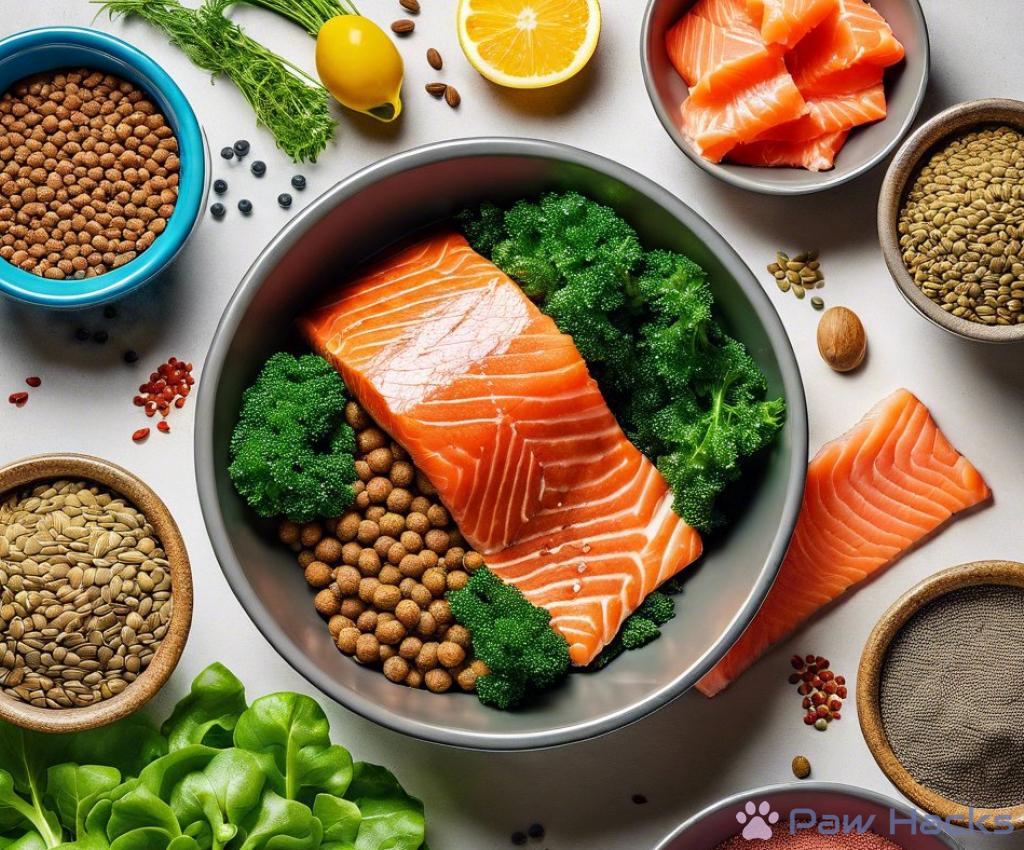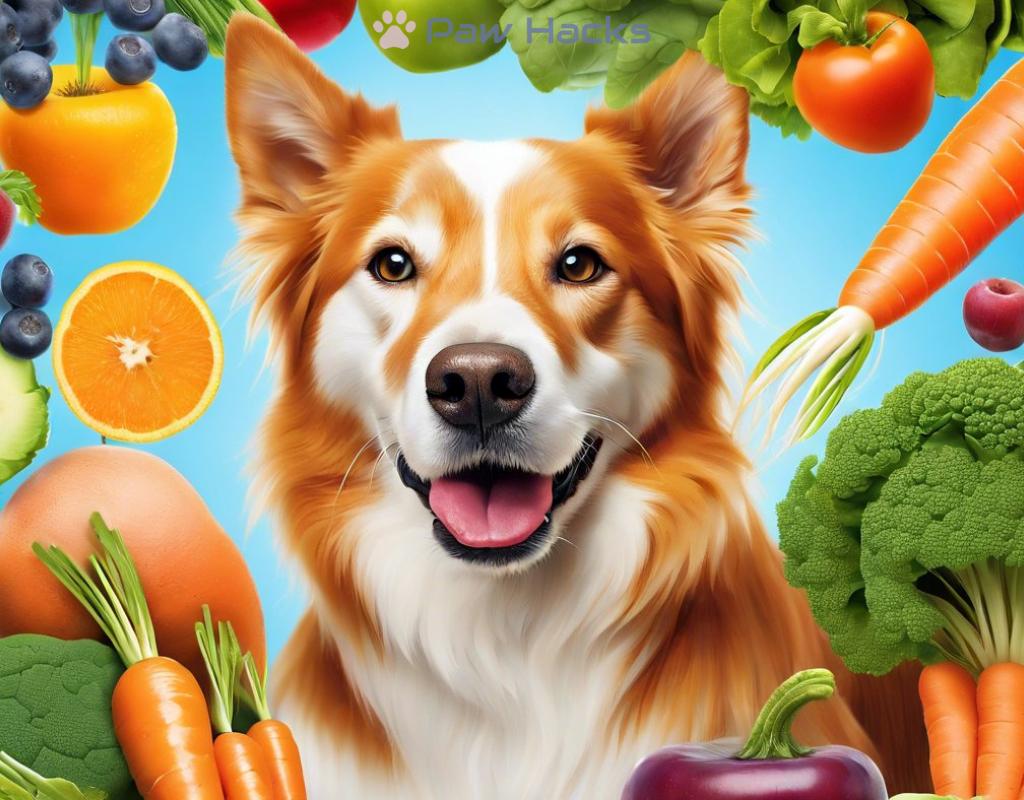Nutrition for Skin and Coat Health in Pets
Essential Nutrients for a Shiny Coat

Every pet owner dreams of a pet with a shiny, healthy coat. It not only looks beautiful but is also a reflection of your pet’s overall health. The key to achieving that striking shine lies in the right nutrition. Understanding the essential nutrients that contribute to coat health can make all the difference in your pet’s appearance and well-being.
Vitamins and fatty acids play a crucial role in maintaining the health of your pet’s skin and coat. These nutrients help to hydrate the skin, reduce inflammation, and promote hair growth. Let’s explore some of the most important ones:
- Omega-3 Fatty Acids: Found in fish oil and flaxseed, these fatty acids help to keep the skin moist and reduce irritation.
- Vitamin E: An antioxidant that helps protect skin cells from damage, vitamin E also aids in maintaining a shiny coat.
- Biotin: This B-vitamin is essential for skin health and is known to promote a healthy, shiny coat.
Just like vitamins, minerals are essential for your pet’s coat health. They help in building the structure of hair and maintaining skin integrity. Here’s a closer look at some key minerals:
| Mineral | Benefits |
|---|---|
| Zinc | Essential for skin cell production and repair, it helps in preventing dryness and flakiness. |
| Iron | Enhances blood circulation, ensuring that nutrients reach hair follicles efficiently. |
| Copper | Important for the formation of melanin, which contributes to coat color and strength. |
By ensuring that your pet’s diet includes these essential nutrients, you can help them achieve a shiny, vibrant coat. Remember, a well-nourished pet is a happy pet!
The Role of Hydration in Skin Health
When it comes to achieving a radiant coat and healthy skin for your furry friend, hydration is often an overlooked yet vital component. Just like humans, pets require an adequate amount of water to maintain optimal body function, including skin health. Water serves as the foundation for nutrient absorption and helps flush out toxins, which can significantly impact your pet’s overall appearance and vitality.
Why Hydration Matters for Pets
Hydration plays a crucial role in keeping your pet’s skin supple and elastic. When pets are dehydrated, their skin can become dry and flaky, leading to discomfort and potential skin issues. Furthermore, dehydration can exacerbate other coat-related problems, making it essential to ensure your pet is drinking enough water daily. In fact, a well-hydrated pet is less likely to experience issues such as itchiness and irritation, which can detract from the beauty of their coat.
Assessing Your Pet’s Hydration Levels
To gauge whether your pet is getting enough hydration, observe their behavior and physical condition. Signs of dehydration can include lethargy, dry gums, and decreased skin elasticity. A simple test is to gently pinch the skin on the back of their neck; if it doesn’t return quickly to its normal position, your pet may be dehydrated. Additionally, monitoring their water intake can help ensure they are consuming adequate fluids. Ideally, pets should drink about 1 ounce of water per pound of body weight daily, but this can vary based on activity level and environmental conditions.
Enhancing Hydration through Diet
Incorporating moisture-rich foods into your pet’s diet can also support hydration. For instance, wet or canned pet food can provide additional fluids compared to dry kibble. Additionally, consider adding fresh fruits and vegetables that are safe for pets, such as cucumbers and watermelon, to their meals for a tasty hydration boost. Not only does this improve their water intake, but it also contributes essential vitamins and minerals that promote skin and coat health. By prioritizing hydration, pet owners can take significant strides toward enhancing their pet’s overall appearance and well-being.
Superfoods That Promote Healthy Skin and Fur
When it comes to enhancing your pet’s skin and coat health, the term ‘superfoods’ often arises. These nutrient-dense foods are packed with vitamins, minerals, and antioxidants that can significantly improve not just the appearance, but also the overall health of your furry companion. By incorporating these powerhouses into your pet’s diet, you can make a remarkable difference in their skin texture and coat shine.
One of the most effective ways to promote a healthy skin and coat is through omega-rich foods. Fish, particularly salmon, and sardines are excellent sources of omega-3 fatty acids, which are essential for maintaining skin moisture and reducing inflammation. These fatty acids work wonders by nourishing the skin from the inside out, helping to alleviate dryness and irritation. When included in your pet’s diet, they not only support a shiny coat but also bolster the immune system, enhancing your pet’s overall vitality.
Another group of superfoods worth exploring are fruits and vegetables. Blueberries, sweet potatoes, and spinach are brimming with antioxidants that combat oxidative stress and promote healthy cell function. These nutrients play a crucial role in skin health by protecting cells from damage caused by free radicals. Additionally, fruits like blueberries are not just tasty treats; they also support circulation, ensuring that your pet’s skin receives the essential nutrients it needs to thrive. Integrating these colorful additions into your pet’s meals can lead to a noticeable improvement in their coat’s luster and texture.
Furthermore, the addition of carrots into your pet’s diet can provide a significant boost in beta-carotene, which converts to vitamin A. This vitamin is vital for skin repair and regeneration, making it an essential component for maintaining a healthy coat. By focusing on these superfoods, pet owners can create a balanced diet that goes beyond basic nutrition and targets specific needs related to skin and coat health.
Common Food Allergies Affecting Skin Conditions
When it comes to maintaining a vibrant coat and healthy skin for your pet, nutrition plays a vital role, but it’s important to be aware of potential food allergies that could hinder these efforts. Many pet owners are often surprised to learn that certain ingredients in their pet’s food can lead to skin irritations and other health issues. Identifying and addressing these food allergies is crucial for achieving optimal skin and coat health.
Understanding Food Allergies in Pets
Food allergies occur when a pet’s immune system mistakenly identifies a specific ingredient as a threat, leading to an adverse reaction. This can manifest in various ways, particularly affecting the skin, where signs such as itching, redness, and excessive scratching can occur. Common allergens include proteins, grains, and certain additives, which can trigger discomfort and impact your pet’s overall health and appearance.
Identifying the Culprits
Recognizing the signs of food allergies in pets is essential for prompt intervention. If you notice your furry companion developing flaky skin, hot spots, or hair loss, it may be time to evaluate their diet. The most common allergens often stem from beef, chicken, dairy, wheat, and soy. Conducting a food elimination trial under the guidance of a veterinarian can help pinpoint the specific ingredient responsible for your pet’s skin woes. During this process, it is vital to remain patient and committed, as it may take several weeks to observe significant improvements.
Making Informed Dietary Choices
Once you identify the allergens affecting your pet, you can make informed dietary choices to support their skin and coat health. Opting for hypoallergenic diets or limited-ingredient foods can be beneficial, as they typically contain fewer potential irritants. Additionally, incorporating essential nutrients like omega fatty acids and antioxidants from safe sources can further enhance your pet’s coat health while steering clear of known allergens. Always consult with a veterinarian to tailor your pet’s diet based on their specific needs and sensitivities.
The Importance of Omega Fatty Acids for Pet Vitality
When it comes to enhancing your pet’s vitality, omega fatty acids are often hailed as essential nutrients that play a pivotal role in promoting not just skin and coat health, but overall well-being. These powerful acids are primarily found in fish oils and certain plant oils, providing a wealth of benefits that can transform your pet’s health for the better. They are categorized into omega-3 and omega-6 fatty acids, each serving unique functions that contribute to your pet’s vitality.
Omega fatty acids are not just any ordinary nutrients; they are integral in regulating various bodily functions. For instance, omega-3 fatty acids, commonly derived from sources like salmon and flaxseed, are renowned for their anti-inflammatory properties. This can be particularly beneficial for pets suffering from skin issues, as it helps to soothe irritation and reduce redness. Conversely, omega-6 fatty acids, found in oils like sunflower and corn, are essential for maintaining skin barrier integrity, preventing moisture loss and keeping the skin hydrated.
Moreover, these fatty acids also contribute to a shiny coat. A diet rich in omega fatty acids ensures that your pet’s fur remains lustrous and vibrant, reflecting their internal health. The effects of these nutrients extend beyond just appearance; they bolster the immune system, supporting your pet’s resilience against diseases.
To harness the full potential of omega fatty acids, pet owners should consider incorporating foods that are rich in these nutrients into their pets’ meals. For example, adding a tablespoon of fish oil to your pet’s diet can significantly increase their omega-3 intake. However, it is crucial to consult with a veterinarian to determine the appropriate dosage and ensure that it complements your pet’s overall dietary needs.
Additionally, many commercial pet foods are now formulated with omega fatty acids as a key ingredient, making it easier to provide your furry friend with the nutrition they need. By prioritizing omega-rich foods, you are not only enhancing your pet’s skin and coat health but also promoting their overall vitality, making them feel more energetic and lively.
Share this content:



